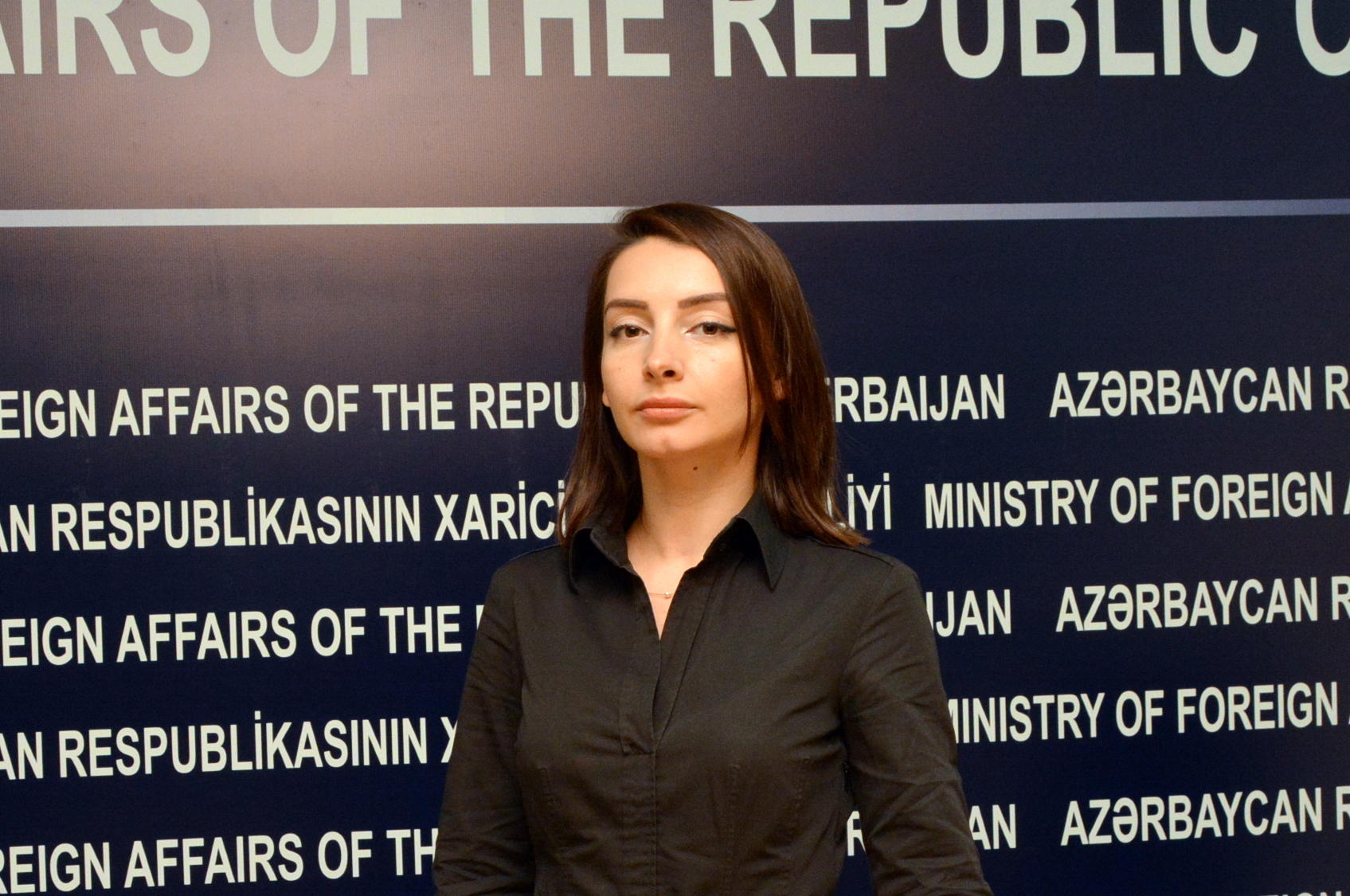Baku, Azerbaijan, Jan. 15
Trend:
Speaker of the Armenian parliament Ararat Mirzoyan made a statement during his speech at the Armenian parliament about the fictional "massacre" of the Armenians, spokesperson for the Azerbaijani Foreign Ministry Leyla Abdullayeva told Trend on Jan. 15.
Abdullayeva was commenting on newly appointed Speaker of the Armenian parliament Ararat Mirzoyan’s statement that "massacre was carried out against Armenians in Baku in 1990."
"The words 'as a nation which historically faced with violent actions, we cannot tolerate violence against any national minority' are an unsuccessful attempt by the Armenian speaker to convince others of the truthfulness of the lie in which he believes,” she added.
“The Armenian speaker, who made such a statement, cannot be unaware of the ethnic cleansing that has been purposefully committed against the Azerbaijanis by Armenian nationalists over the past two centuries,” she said.
Abdullayeva stressed the bloody events committed by the Armenians over the past decades.
"Armenia, which was patronized by the ruling circles of the Soviet Union, carried out an aggressive policy against Azerbaijan in 1988-1991,” she said. “As a result, civilians were killed, settlements were destroyed and plundered. On September 18, 1988, about 15,000 Azerbaijanis living in Azerbaijan’s Khankendi city, were forcibly expelled from the city and their houses were burned.”
“As a result of ethnic cleansing during this period, about 250,000 Azerbaijanis from 185 Azerbaijani villages in Armenia were subjected to aggression and were forcibly expelled from their native lands,” she added. “As a result of the Khojaly genocide committed by the Armenian armed forces on the night of Feb. 25-26, 1992, 613 civilians were killed, among whom were children, women and the elderly.”
She noted that as a result of Armenia’s aggression policy, more than one million Azerbaijanis became refugees and IDPs.
“We recommend that the Armenian speaker before making statements once again pay attention to the well-known historical events, to their sad consequences and make statements not for stirring up hatred between nations, but for peace, progress and future development in the region,” she noted.
The conflict between the two South Caucasus countries began in 1988 when Armenia made territorial claims against Azerbaijan. As a result of the ensuing war, in 1992 Armenian armed forces occupied 20 percent of Azerbaijan, including the Nagorno-Karabakh region and seven surrounding districts.
The 1994 ceasefire agreement was followed by peace negotiations. Armenia has not yet implemented four UN Security Council resolutions on withdrawal of its armed forces from the Nagorno-Karabakh and the surrounding districts.






